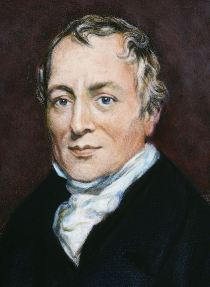The ‘patriotic bias’ of Ricardo’s trade theory Ricardo ging in seinem Modell des komparativen Vorteils von einem „patriotischen Bias“ aus: Er nahm an, dass weder In-vestments noch Arbeitskräfte international sonderlich mobil sind, und führt sein Argument des komparativen Vorteils für den freien Handel der Erzeugnisse unterschiedlicher Nationen bzw. Produktionsstandorte. Die heutige Globalisierung geht freilich über einen freien Güterhandel zwischen ansonsten immobilen Produktionsstandorten weit hinaus; sie ist kein Wettbewerb der Produktionsstätten, sondern – durch internationale Kapitalmobilität und transnationale Konzernwirtschaft – ein Wettbewerb um Produktionsstätten. Waren im ricardianischen Paradigma also internationalen Wettbewerbs, die um
Topics:
Lars Pålsson Syll considers the following as important: Economics
This could be interesting, too:
Lars Pålsson Syll writes Schuldenbremse bye bye
Lars Pålsson Syll writes What’s wrong with economics — a primer
Lars Pålsson Syll writes Krigskeynesianismens återkomst
Lars Pålsson Syll writes Finding Eigenvalues and Eigenvectors (student stuff)
The ‘patriotic bias’ of Ricardo’s trade theory
Ricardo ging in seinem Modell des komparativen Vorteils von einem „patriotischen Bias“ aus: Er nahm an, dass weder In-vestments noch Arbeitskräfte international sonderlich mobil sind, und führt sein Argument des komparativen Vorteils für den freien Handel der Erzeugnisse unterschiedlicher Nationen bzw. Produktionsstandorte. Die heutige Globalisierung geht freilich über einen freien Güterhandel zwischen ansonsten immobilen Produktionsstandorten weit hinaus; sie ist kein Wettbewerb der Produktionsstätten, sondern – durch internationale Kapitalmobilität und transnationale Konzernwirtschaft – ein Wettbewerb um Produktionsstätten. Waren im ricardianischen Paradigma also internationalen Wettbewerbs, die um einzelne Absatzmärkte ritterten, stehen in der heutigen Globalisierung Gesellschaften miteinander in einem Wettbewerb, in dem es gilt, durch günstige „Standortbedingungen“ Investments auf dem globalen Markt zu attrahieren.
David Ricardo built his theory of comparative advantage on a couple of restrictive assumptions, of which the ‘patriotic bias’ was one. Following in his footsteps, modern mainstream modellers, using questionable assumptions, can derive whatever conclusions they want. Wanting to show that ‘free trade is great’ just e.g. assume ‘all economists from Chicago are right’ and ‘all economists from Chicago consider free trade to be great’ The conclusions follow by deduction — but is of course factually totally wrong. Models and theories building on that kind of reasoning is nothing but a pointless waste of time.
What mainstream economics took over from Ricardo was not only the theory of comparative advantage. The whole deductive-axiomatic approach to economics that is still at the core of mainstream methodology was taken over from Ricardo. Nothing has been more detrimental to the development of economics than going down that barren path.
Ricardo shunted the car of economic science on to the wrong track. Mainstream economics is still on that track. It’s high time to get on the right track and make economics a realist and relevant science.
This having been said, I think the most powerful argument against the Ricardian paradigm is — as argued by Kapeller — that what counts to day is not comparative advantage, but absolute advantage.
 What has changed since Ricardo’s days is that the assumption of internationally immobile factors of production has been made totally untenable in our globalised world. When our modern corporations maximize their profits they do it by moving capital and technologies to where it is cheapest to produce. So we’re actually in a situation today where absolute — not comparative — advantages rules the roost when it comes to free trade.
What has changed since Ricardo’s days is that the assumption of internationally immobile factors of production has been made totally untenable in our globalised world. When our modern corporations maximize their profits they do it by moving capital and technologies to where it is cheapest to produce. So we’re actually in a situation today where absolute — not comparative — advantages rules the roost when it comes to free trade.
And in that world, what is good for corporations is not necessarily good for nations.
